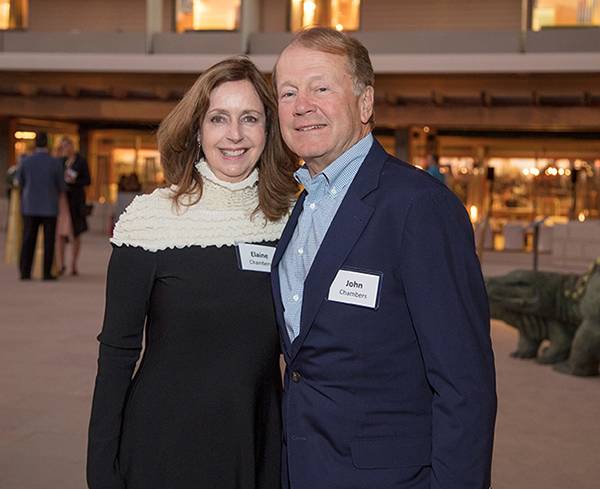You are here
Q&A With New Board Member Elaine Chambers
Philanthropist Elaine Chambers has been elected to the CDC Foundation board of directors. Chambers has a passion for supporting educational and health initiatives both in Northern California, where she resides, as well as nationally. From 2006–2019, she has been a board member with the Lucile Packard Foundation for Children’s Health in Palo Alto, CA. She served as board chair for the foundation from 2015–2018. In addition, Chambers served on the Lucile Packard Children’s Hospital Stanford board of directors from 2015–2018.
What inspired you to serve on the CDC Foundation board of directors?
The question I asked myself when approached about joining the CDC Foundation’s board of directors was, can I possibly have an impact or make a difference in some small way on the health and wellbeing of people in this country and beyond? From my previous board experience on the Lucile Packard Foundation for Children's Health at Stanford, I learned that giving of time and resources, leading by example, and developing relationships in the community did indeed have a positive impact on the growth and development of the children's hospital. The human health crisis is always evolving, and I am honored to be asked to be a part of helping the CDC Foundation support CDC in all of its missions and programs.
How does your previous board service at the Lucile Packard Foundation for Children's Health and the Lucile Packard Children's Hospital inform your service at the CDC Foundation?
Serving on the Lucile Packard Foundation for Children's Health (LPFCH) board for 13 years and the Lucile Packard Children's Hospital (LPCH) board for three years has given me not only great insight and lessons learned into the operations and complexities of a children's hospital but the degree to which a supporting foundation can have an impact on the future growth of the hospital. Both LPFCH and LPCH are aligned with the child health programs at Stanford University and the School of Medicine to elevate the priority of children's health and accessibility to health care. I have watched how these dynamic relationships along with strong community support have created the environment for developing one of the preeminent children's hospitals in the country.
What drives your commitment to improving public health?
I believe improving public health or personal health comes back to that one thing that all of us have in common. We all want to live a prosperous life with family and friends and feel we are being productive. However, health circumstances for which we sometimes feel we have little or no control are a constant reminder that our lives are undeniably influenced by our natural world of maladies, from viruses and diseases, to physical and mental health issues, to substance addictions, and by the next unknown health threat. CDC is charged with bringing some order to this part of our world and for this reason I am inspired and honored to support and advance CDC's work through the CDC Foundation.
What do you think is the biggest issue/challenge facing public health today?
In my view, there are several major challenges to public health today. First, there is the problem of providing equal access to quality health care in all areas of medicine to all ages and all geographic locations. Another challenge is anticipating and staying ahead of the next global health crisis because of the imminent threat of constantly mutating viruses. A third challenge is creating a preemptive and preventative mindset for personal health and wellbeing.
What is the role of public/private partnerships in improving health?
I have witnessed first hand how a community can come together to improve public health. In Silicon Valley, public companies donated goods, resources and time to change the way health care was delivered to rural communities in California. Children who could not travel great distances to see a doctor were able to visit their doctors via telehealth or telemedicine. This is but one of many examples of how combining public and private resources can dramatically improve the speed and quality of health care.
Who are some of your health heroes and why?
I have had the opportunity to meet some of the most brilliant, dedicated physicians, researchers and nurses in the world at Lucile Packard Children's Hospital at Stanford. This humble, honorable group of women and men work tirelessly to improve the lives of others. Their reward is only that they can make a difference in someone else's life. They are my true heroes.

